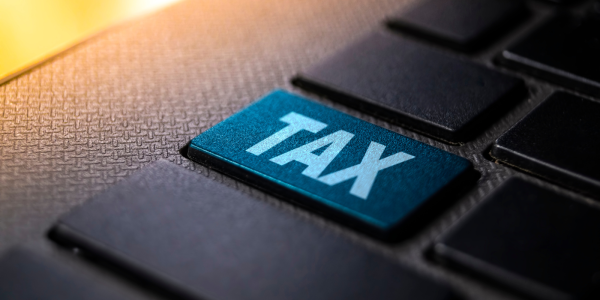HMRC must mitigate burden of digital tax reporting for smallest businesses
The Low Incomes Tax Reform Group (LITRG) has welcomed the main findings of the Public Accounts Committee’s review of HMRC’s progress with its Making Tax Digital (MTD) programme, as set out in its report published today, especially in relation to the impact on unrepresented taxpayers.

LITRG is calling on HMRC to do more to mitigate the burden of complying with MTD, including by providing free basic software to the smallest businesses.
The PAC’s report1 suggests that HMRC have ‘lost sight of the taxpayer’ when developing the MTD programme and expresses concern at the potential burdens and costs that taxpayers will have to bear to comply with the new digital tax reporting requirements.
The report states: ‘While Making Tax Digital will substantially benefit HMRC by improving its systems, taxpayers will be asked to spend more and do more to comply.’ It goes on to say that HMRC are ‘increasing the burdens it imposes by asking Self Assessment taxpayers to pay for third party software and file tax returns quarterly.’
Sharron West, Technical Officer at LITRG, said:
“The PAC are right to be subjecting the Making Tax Digital programme to close examination. HMRC need to do more to minimise the costs and burdens of complying with these new obligations, especially when it comes to the smallest businesses.
“Whilst we are generally supportive of HMRC’s desire for businesses to use digital tools as part of the wider digital agenda, as details of the MTD regime have emerged it has become clear that it is not an easy aim to achieve.
“Today’s report echoes what LITRG have been saying since 2016 about MTD , which is that some individuals, many of whom will be on low incomes, are likely to incur costs to implement the new regime.2 This is in addition to the potential burden of switching from manual to digital recordkeeping and submitting quarterly updates.
“HMRC announced some simplifications to the regime in this week’s Autumn Statement which should go some way towards easing some of the burdens that many small businesses would have faced in trying to comply with MTD. However, we think HMRC could go further.
“One way would be for HMRC to make their own free software available to the smallest businesses to help them meet their obligations without the need to incur extra costs to pay for new record keeping software.
“The Committee has highlighted LITRG concerns about the levels of service HMRC will provide for unrepresented taxpayers. It is crucial that HMRC allocate sufficient resource to support taxpayers and provide the guidance they need to comply with their obligations. This is especially true for those who cannot transact digitally or who need support to do so.”
Businesses with turnover below £30,000
LITRG are calling on the government to give those on the lowest incomes certainty as to whether they will be required to comply with MTD in due course, following yesterday’s announcement that the mandation of MTD for businesses with turnover between £10,000 and £30,000 will continue to be kept under review for the time being.
Sharron West said:
”Exactly who is in scope of MTD is a fundamental question. After carrying out a review into how MTD is likely to affect the smallest businesses which has lasted most of this year, it is very disappointing that long term clarity for this group, as to whether they need to prepare for MTD, has not been forthcoming. We urge the government to reach a final decision for this cohort as soon as possible for the benefit of taxpayers, software developers and also HMRC .”
Notes for editors
- Progress with Making Tax Digital, Public Accounts Committee, 24 November 2023. Paragraph 3 of Conclusions and Recommendations states: “HMRC has lost sight of its original aim to reduce the burden on taxpayers and is increasing the burdens it imposes by asking Self Assessment taxpayers to pay for third party software and file tax returns quarterly.”
- As well as incurring costs for new software, other potential costs include buying new hardware like laptops and printers, training courses, and support from IT and/or accountancy professionals. See also recommendation 4 of the report for more information on upfront and ongoing costs to taxpayers.
